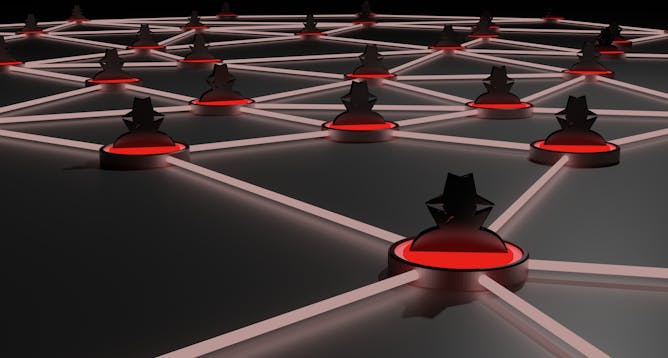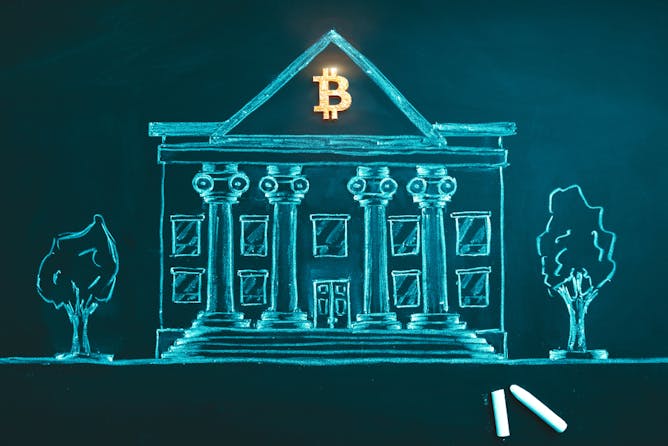|
|
|
|
It seems that world leaders have finally woken up to the ransomware problem. The new golden goose of the cybercriminal underworld, a ransomware attack locks victim organisations from their critical data, demanding a ransom payment for its return. Experts reckon most attacks go unreported, with companies meekly handing over the ransom to get back online. In doing so, they’re funding an increasingly audacious industry that’s more than willing to reinvest its earnings in better tech and personnel.
Joe Biden recently suggested the US and Russia sign an extradition treaty to curb this growing menace, enabling both countries to pluck troublesome cybercriminals from behind foreign computers and drop them before domestic courts. But things aren’t so simple. By showing us how ransomware attacks really work – involving a distributed suite of brokers, consultants and affiliates – a cybersecurity expert has exposed a key flaw in any
extradition plan: who, exactly, would they arrest?
Another darling of cybercriminals, cryptocurrency continues to make waves in more conventional circles. So-called “crypto banks” are currently offering savings rates some ten times higher than what you can get on the high street – but you’d do well to heed advice about the risks of trusting them with your cash. And we’ve learned that white, fluffy aeroplane contrails are actually harming the climate, but that alternative fuels may soon help tackle the problem.
|
Alex King
Commissioning Editor, Science + Technology
|

|
|

BeeBright/Shutterstock
David S. Wall, University of Leeds
Ransomware has gone professional, with criminal consultants, affiliates and brokers – arresting them all will be difficult.
|

Big rates, not insignificant risks.
Velishchuk Yevhen
Matthew Shillito, University of Liverpool
Operators like BlockFi and Nexo offer rates that are north of 9%.
|

Jag_cz/Shutterstock
David Simon Lee, Manchester Metropolitan University
Soot from aeroplane exhausts can linger in the atmosphere, seeding ice clouds which trap heat.
|
Environment + Energy
|
-
Liam F. Beiser-McGrath, Royal Holloway University of London
Mitigating climate change is more politically popular than adapting to its inevitable effects.
-
Andrew Gosler, University of Oxford
Research suggests our names for birds reflect our changing relationship with the natural world: here's why that matters
|
|
Business + Economy
|
-
Tony Heron, University of York; Gabriel Siles-Brügge, University of Warwick
International trade policy is back in British politicians' hands.
-
Jean-Philippe Weisskopf, Haute école spécialisée de Suisse occidentale (HES-SO); Philippe Masset, Haute école spécialisée de Suisse occidentale (HES-SO)
We built an economic model to predict the prices of the 2020 vintage in France’s most prestigious wine region – here’s what we found.
|
|
Politics + Society
|
-
Peter John McLoughlin, Queen's University Belfast
With the resignation of shortlived DUP leader Edwin Poots, unionism in Northern Ireland is in turmoil.
-
Maud Chirio, Université Gustave Eiffel
Don't be fooled by the recent resignation of three members of the military in Brazil – the country is heading down an increasingly militarised path.
|
|
Health + Medicine
|
-
Tracy Epton, University of Manchester
Psychologists have identified three potential barriers to vaccination: capability, opportunity and motivation.
|
|
Science + Technology
|
-
Martha Hilton, University of Manchester; Nathan Jurik, Syracuse University; Sascha Stahl, CERN
Record precision measurements at Cern may help explain why the universe has more matter than antimatter.
|
|
Arts + Culture
|
-
Paul Carr, University of South Wales
From Three Lions to You’ll Never Walk Alone, some songs have become unique expressions of love that fans have for the game and their teams.
|
|
| |
Featured events
|

|
Online, Birmingham, Warwickshire, B15 2TT, United Kingdom of Great Britain and Northern Ireland — University of Birmingham
|

|
Online, Plymouth, Plymouth, PL4 8AA, United Kingdom of Great Britain and Northern Ireland — University of Plymouth
|

|
University of Reading, Whiteknights, PO Box 217 , Reading , Reading, RG6 6AH, United Kingdom of Great Britain and Northern Ireland — University of Reading
|

|
University of Essex, Wivenhoe Park, Colchester, Essex, CO4 3SQ, United Kingdom of Great Britain and Northern Ireland — University of Essex
|
|
|
|
| |
| |
| |
| |
| |
|
|
|
|
|
|
|